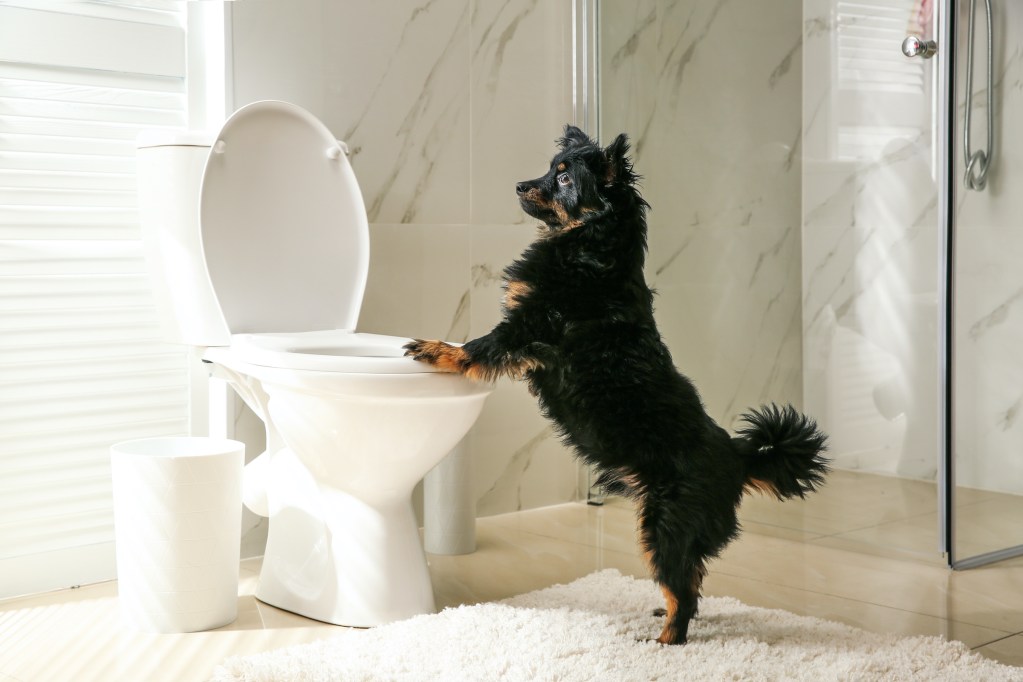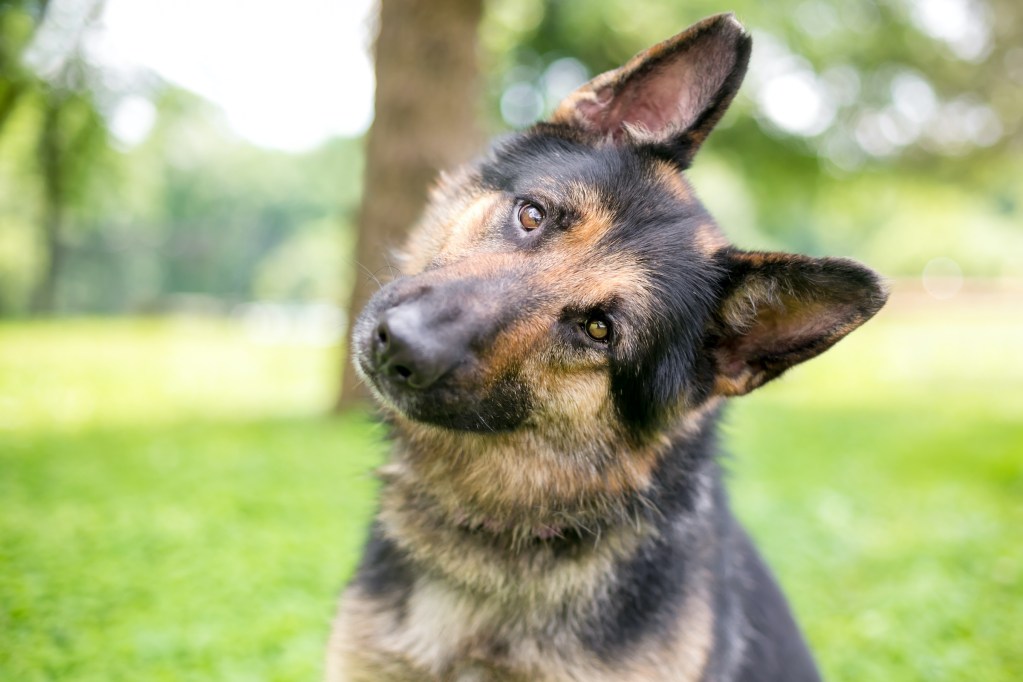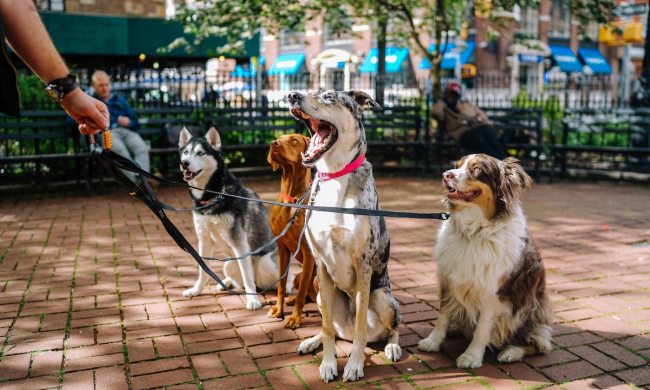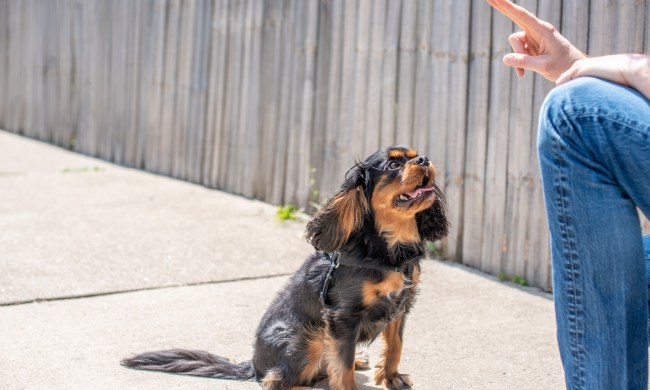
If you’re wondering, “Why does my dog follow me to the bathroom?” — you’re certainly not alone. Most pet parents are used to having a four-legged shadow no matter what room in the house they’re in, but making eye contact with your dog while you’re on the pot can feel a little bit strange. So what’s behind this canine behavior, and is it a bad thing?
We’ve looked into this funny phenomenon and what it means to your dog, and it turns out that it’s not as strange as you think. Remember — your pup has a very different way of viewing the world, so while having company in the restroom may seem odd to you, your dog doesn’t think twice about it.

Why does my dog follow me to the bathroom?
Even though you often (if not every time) accompany your dog on their potty breaks, it’s not likely that your dog is returning the favor. In fact, your pup may have zero idea what you’re doing on the porcelain throne, even if they do seem curious about any smells or sounds. After all, dogs’ noses and ears are exponentially more sensitive than humans’, so it’s only natural if they pick up on something going on. But, odds are, that’s not why they followed you in there.
Your dog feels attached to you and wants to go where you go
Many dogs enjoy being around their people, no matter what room they’re in. Think about it — if your dog follows you from the bedroom to the living room, why wouldn’t they follow you to the bathroom? Dogs have no sense of privacy in the same way people do, so they don’t know that restrooms are normally meant for one.
Your dog may be dealing with separation anxiety
Sometimes, though, a dog’s following can be a little too much. If your dog seems desperate to be with you at all times, they could be dealing with a case of separation anxiety. When this happens, a dog becomes especially distressed when away from their owner, so they may scratch at the bathroom door or demand to follow you inside. Whether that works for you is up to you.
It’s time for a walk, meal, or playtime
Sometimes, your dog wants your attention for a reason. Maybe it’s time for dinner, or you’re a bit late for your daily walk — your four-legged friend will be sure to let you know. In this case, your dog may not lie down on the bathroom floor and mind their own business. They’ll probably be waiting for you eagerly, which could result in an impatient doggie during longer restroom visits.
Your pup is curious or bored
Sometimes, it’s as simple as curiosity or boredom. Your dog might be interested in the sounds and smells coming from the bathroom, or they may just be looking for something to do.

What to do when your dog follows you to the bathroom
If you don’t mind the company, you don’t need to do anything at all. Some dogs will simply curl up on the floor until it’s time to follow you to the next room, but other pups may try to sit on your lap, bring you a toy, or get into trouble in the bathroom. If this is the case, you may consider changing things up.
Closing the door is enough to give some pet parents privacy, but for dogs with separation anxiety, this can take time. Be sure not to reward the behavior by giving your dog attention when they follow you to the bathroom. This is when obedience training can come in handy, too. Using a command like “stay” followed by a motivating reward can be a wonderful training tool.
Now that you know why your dog follows you to the bathroom, you can make the best decisions for you and your pet. Whether you mind the company, you deserve to do your business in peace.



